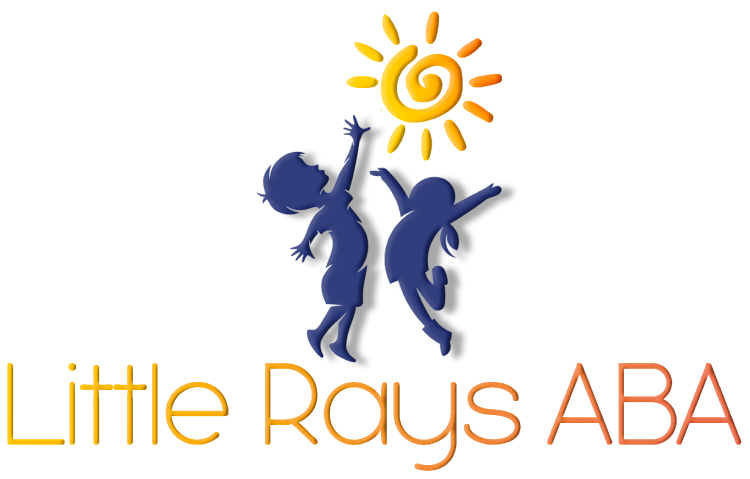For many adults, living independently is a significant milestone. But for individuals with autism, the transition to independent living comes with unique challenges and considerations. Families often wonder: Can adults with autism live alone? The answer depends on the individual's abilities, support system, and level of independence.
While some autistic adults thrive in independent living situations, others may require varying levels of assistance. This guide explores the factors that influence independent living, the skills needed, and the available resources that support autistic adults in leading fulfilling, self-sufficient lives.
Understanding Autism and Independent Living
Autism spectrum disorder (ASD) affects individuals in diverse ways, including their communication, social interactions, sensory sensitivities, and executive functioning skills. Because autism is a spectrum, some individuals can live alone with little support, while others may need daily assistance to manage everyday tasks.
Independent living is not just about physical capability—it also involves emotional resilience, problem-solving skills, and access to the right support systems.
Factors That Influence Independent Living
Before deciding if an autistic adult can live alone, consider:
- Level of Daily Functioning: Can the individual manage personal hygiene, cooking, cleaning, and transportation?
- Communication Skills: Can they effectively communicate their needs in emergencies?
- Financial Management: Are they able to budget, pay bills, and handle basic financial responsibilities?
- Social and Emotional Well-being: Can they manage stress, anxiety, or loneliness?
- Safety Awareness: Do they understand personal safety, including recognizing dangers and handling emergencies?
Each person is unique, and independent living should be approached based on individual strengths and challenges.
Essential Skills for Living Alone with Autism
Successful independent living requires a combination of life skills, social skills, and problem-solving abilities. Here are key areas to focus on:
1. Self-Care and Personal Hygiene
- Bathing, brushing teeth, and grooming independently.
- Recognizing when to seek medical or dental care.
- Managing medications if needed.
2. Meal Preparation and Nutrition
- Cooking simple meals and using kitchen appliances safely.
- Understanding nutrition and making healthy food choices.
- Grocery shopping and planning meals.
3. Household Management
- Keeping the living space clean and organized.
- Doing laundry and basic home maintenance.
- Handling minor repairs or knowing when to seek help.
4. Financial Responsibility
- Budgeting and paying rent, utilities, and other bills.
- Managing bank accounts, credit cards, and savings.
- Understanding financial safety (avoiding scams, overspending).
5. Transportation and Mobility
- Using public transportation or driving if possible.
- Understanding directions and navigation.
- Scheduling rides when needed.
6. Social and Emotional Support
- Building a support network of friends, family, or mentors.
- Managing stress and self-regulating emotions.
- Knowing when and how to ask for help.
Mastering these skills helps autistic adults gain confidence and increase their ability to live alone successfully.
Challenges of Living Alone with Autism
While independent living is possible, it comes with unique challenges that require preparation and support.
1. Sensory Sensitivities
Many autistic individuals have heightened sensory sensitivities to noise, lights, or textures, which can make independent living overwhelming. Solutions include:
- Choosing a quiet, sensory-friendly environment.
- Using noise-canceling headphones or blackout curtains.
- Creating structured routines to reduce stress.
2. Difficulty with Executive Functioning
Executive functioning challenges affect time management, organization, and problem-solving. Strategies to improve these skills include:
- Using planners, reminder apps, and visual schedules.
- Breaking tasks into small, manageable steps.
- Practicing decision-making skills with a trusted mentor.
3. Social Isolation
Some autistic adults may struggle with loneliness due to difficulty making social connections. To prevent isolation:
- Engage in special interest groups, clubs, or community activities.
- Schedule regular check-ins with family or support networks.
- Use online communities or therapy groups for connection.
4. Handling Emergencies
Understanding emergency procedures is crucial for independent living. This includes:
- Knowing how to call 911 or seek help in urgent situations.
- Keeping emergency contacts accessible.
- Learning basic first aid and home safety.
Types of Independent Living Options for Autistic Adults
If fully independent living isn’t feasible, other housing options offer support while encouraging autonomy. These include:
1. Supported Independent Living
Individuals live alone but receive assistance with tasks such as budgeting, meal prep, or transportation through support services or life coaches.
2. Group Homes
Small, supervised homes where autistic adults live with peers while receiving guidance from caregivers or professionals.
3. Assisted Living Communities
Specialized housing that provides structured support, therapy, and social opportunities while promoting independence.
4. Living with a Roommate or Family Member
A great middle-ground option where an autistic adult can experience independence while having someone nearby for support.
Each option depends on individual needs, preferences, and long-term goals.
Building a Support System for Independent Living
Even adults who live alone benefit from a strong support system to help with unexpected challenges. Here’s how to build one:
- Develop a Reliable Emergency Plan: Ensure a list of contacts is available for medical, financial, or emotional support.
- Utilize Community Resources: Many cities offer autism support programs, job coaching, and independent living services.
- Consider ABA Therapy or Life Skills Coaching: These services help develop necessary life skills for independent living.
- Encourage Regular Check-ins: Whether with family, friends, or mentors, having scheduled check-ins prevents isolation and ensures well-being.
Final Thoughts
The ability for adults with autism to live alone depends on their unique abilities, challenges, and support system. With the right skills, planning, and assistance, independent living can be a fulfilling and successful experience.
At Little Rays ABA, we provide support for autistic individuals and their families, helping develop essential life skills for greater independence. Whether through ABA therapy, social skills training, or personalized guidance, we are here to help. Contact us to learn more about how we can support your journey to independent living!
Frequently Asked Questions
Can all autistic adults live alone?
Not all autistic adults can live alone. It depends on their ability to manage daily tasks, finances, and social interactions. Some need full independence, while others require varying levels of support.
What resources are available for autistic adults who want to live alone?
Resources include life skills training, ABA therapy, supported housing programs, community support groups, and financial assistance programs.
How can family members help an autistic adult transition to independent living?
Family members can help by teaching life skills, creating structured routines, ensuring access to resources, and providing emotional support throughout the process.
Sources:
- https://www.autismspeaks.org/social-skills-and-autism
- https://www.steadystridesaba.com
- https://www.autism.org.uk/advice-and-guidance/topics/sensory-differences/sensory-differences
- https://www.autismspeaks.org/executive-functioning
- https://pmc.ncbi.nlm.nih.gov/articles/PMC8788910/
Unlock Your Child's Potential with Expert ABA Therapy!
At Little Rays ABA, we provide compassionate, evidence-based ABA therapy to help children with autism thrive. Our personalized approach fosters growth in communication, social skills, and independence.
Get In Touch With Us Today to Get Started With ABA Therapy!
Related Posts
MENU
GET IN TOUCH
7117 San Salvador Dr Boca Raton, FL 33433
3200 Collins Ave Miami Beach, FL 33140





